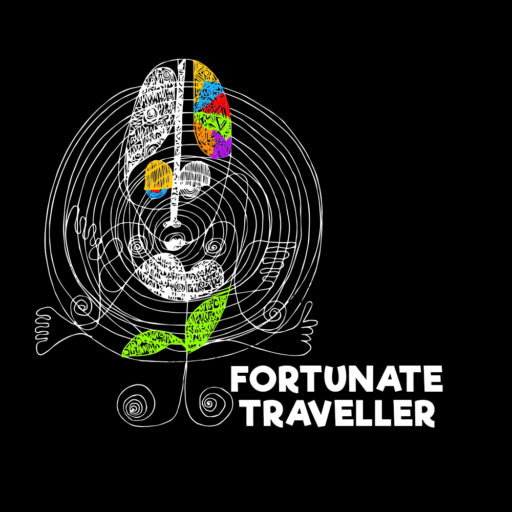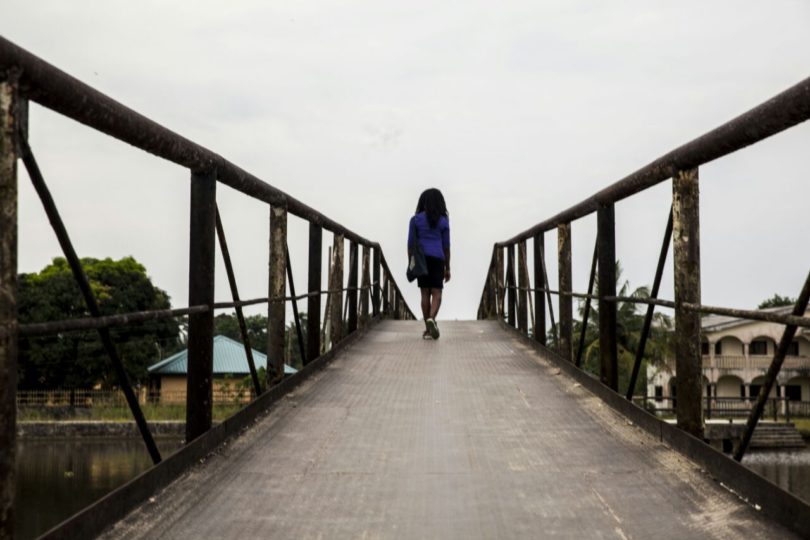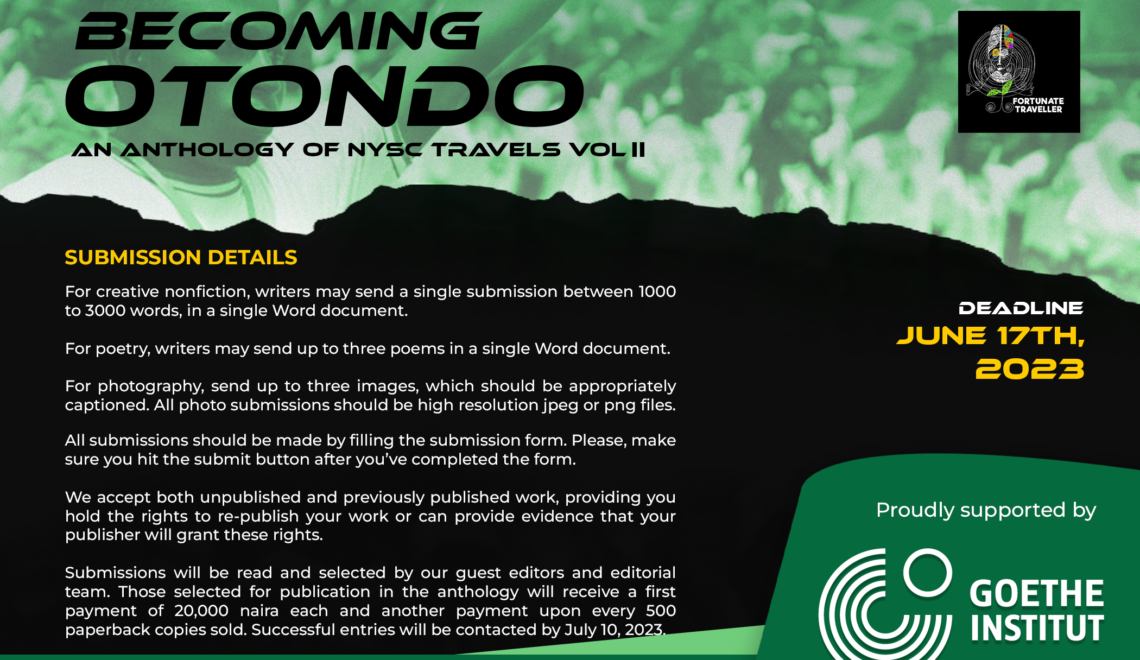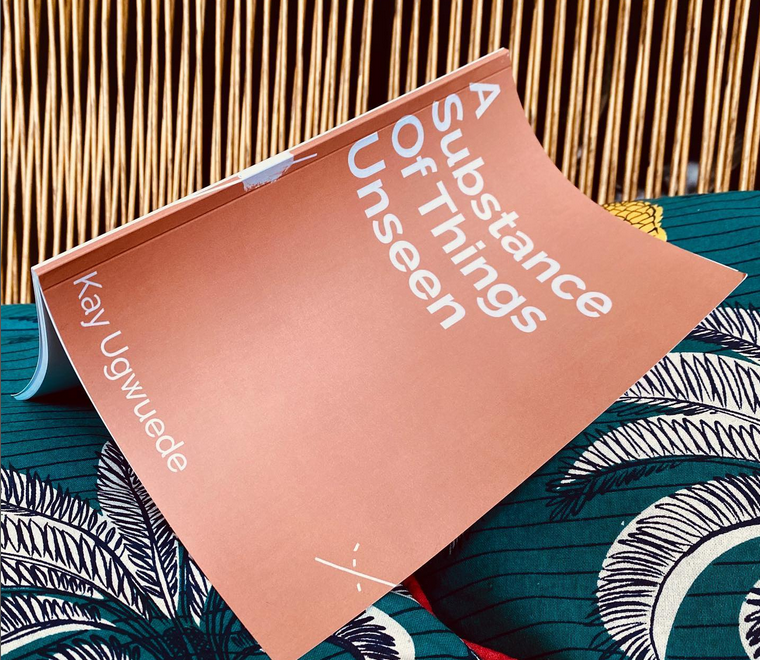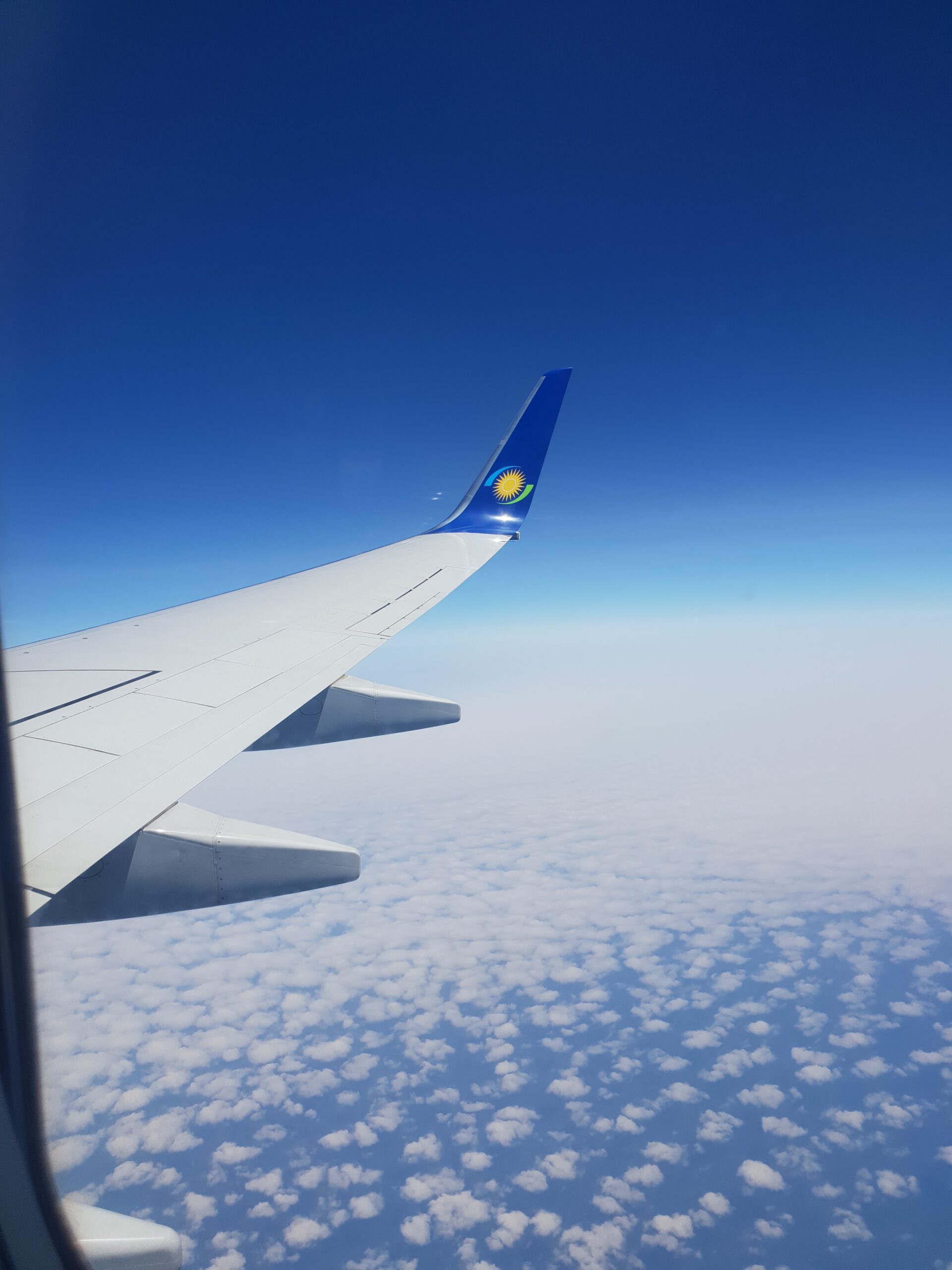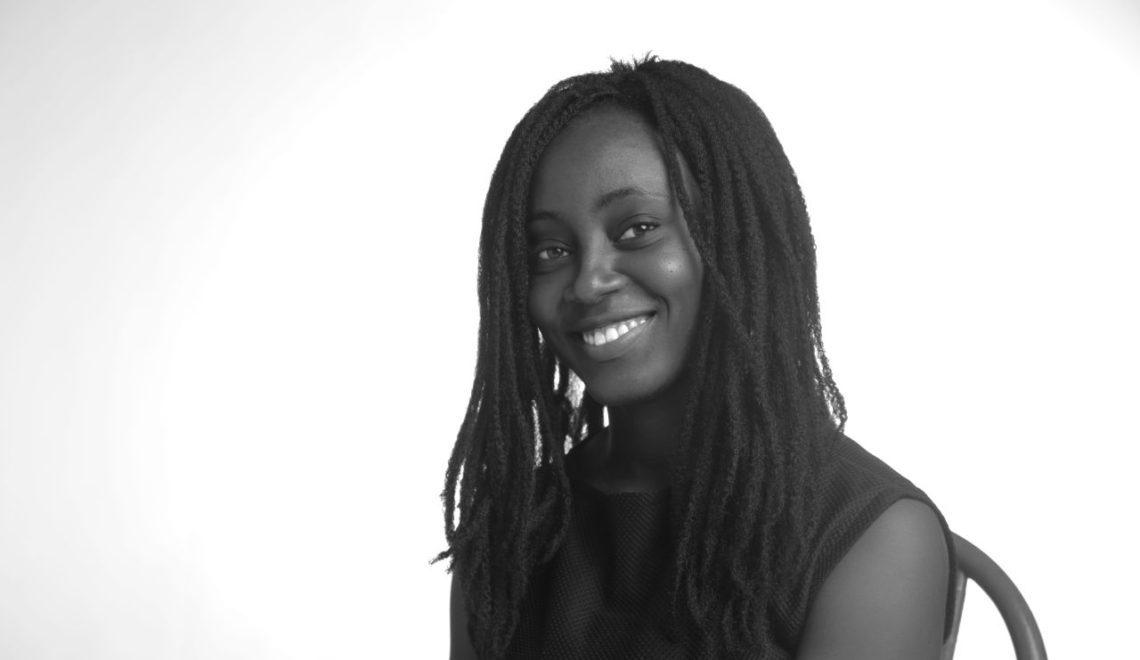
Invisible Borders is a travel collective of writers, photographers and filmmakers. In 2016 they embarked on a trans-Nigeria road trip. The aim was to map the diversity across regions, states and ethnic formations in post-colonial Nigeria. They produced images and writings that interrogated both the elusive and apparent borders within Nigeria years after the amalgamation of its Northern and Southern Protectorates.
To complete the work begun last year, another group of writers, photographers and filmmakers embarked on a six-week road trip across Nigeria taking another route.
Kemi Falodun is one of the group of travellers that have taken part in this year’s Invisible Borders road trip, which is the 7th journey the collective has made since its inception in 2009. Falodun is currently the head of communications of the Invisible Borders Trans-African Organisation. She writes book reviews, as well as short stories and essays, often exploring themes on loss, memory and the complexities of human relationships.
Trust F. Òbe talks to her, during the Borders Within II: The Trans-Nigerian Road Trip, about her work with Invisible Borders, her encounters on the road trip and how they have informed and sharpened her perceptions.
Trust F. Òbe for Fortunate Traveller: In what ways have the (invisible) borders within the country unravelled to you, by way of this road trip?
Kemi Falodun: The social, mental, cultural, ethnical, and all manner of invisible borders are barriers that are reflected in the little things and affect how people relate with those who do not share their views on certain subjects. But more importantly, I’ve realised that despite the presence of these borders, people remember that they are first humans and endeavour to act accordingly.
How does this inform your views of the country?
Oh well, it’s easy for someone living in a city, Lagos for instance, to remain in their bubble, while holding on to certain notions about a place and a people that aren’t true. During the Borders Within II road trip, there’s a quote by Tennessee Williams that I carried with me everywhere: ‘I have always depended on the kindness of strangers.’ We met strangers who were good to us even though they weren’t obliged to be. Beyond our diverse beliefs, cultures and languages in this country, I believe we are, in many ways, galvanised by our stories and shared humanity.
What challenges has the road trip presented, in itself?
I ease myself – body and mind – into new places slowly. Considering that we spent just about two to four days in each city, this was quite a challenge initially. It was as though my body was leaving a place my mind hadn’t yet arrived at. And I’m someone who wants to be able to see everything, feel everything.
But looking back now, the challenge was a blessing because I became compelled to be mentally and emotionally present in order to maximise my stay in each city. As much as my body was constantly journeying across space and time, I had to learn to bring my mind along quickly.
What external challenges has the road trip been presented with?
There were some instances that we would have prepared to go to a specific location or to speak to someone in a community but we were denied access. As much as we understood that being invited into other people’s space is a privilege, it was disappointing sometimes when our expectations were cut short.
Cities, like humans, have a heart and a soul, are there cities into whose soul you found a window?
One interesting thing about the road is how it can sometimes stretch before you, long and straight. Other times, it has lots of bends so it unfolds slowly, showing only the part of itself directly in front of you. I say this because travelling from Minna to Sokoto was a notable experience for me. I had a window seat, and one of my activities during the road trip – or when in any moving vehicle for that matter – was looking outside through the window. The trip to Sokoto presented straight roads like I had never seen, with a flat, dry land that spread far into the horizon. Just sitting there, looking and reflecting was a communion in itself.
What I’m saying is, I felt like I already had a connection with some places even before we arrived. And beyond the cities we actually visited, beyond the destinations, I connected more with the roads, the journeys.
What relationships have you had with particular cities?
I had a couple. For me, the relationship formed with a city was usually as a result of my encounters. During our stay in Afikpo, for instance, we visited Unwana, a neighbouring town. At Unwana River, I met two girls and I had a conversation with them, one that filled me with sadness and hope. When I think of Unwana or Afikpo, I think of those girls, I think of their laughter, I think of their eyes.
Everyone warned us Jos was going to be cold but I left there disappointed. And when I mentioned this to Tolu, our guide, he was quick to remind me it’s November. Try coming in December or January, he said. So maybe someday I’ll go back, just to experience the cold.
Have some spaces/places offered you a form of timelessness; maybe a kind of nostalgic familiarity that seems to say ‘I might have been here before at some point in a previous time,’ relative to say, places which have given you new memories to keep?
Ah. Many places. Many spaces. And I mean ‘spaces’ not only in relation to physical spaces but also other people’s lives. Interacting with a stranger and thinking ‘I know you. We share something.’ And this is one of the many things I was grateful for about the road, the gift of infinite encounters.
When considering what a trip, especially an organised road trip such as this means or could mean, have you ever tried to consider it within a juxtaposed context of displacement, a condition under which several millions of Nigerians find themselves powerless against a choice they have to make; to flee, to be compelled to do a road trip, often by foot exclusively in search of safety, and hopefully, in the wake of recent acts of terror? What might this road trip bring to bear, in your mind, in such a context?
No one forced me to go for the trip. I wasn’t running away from anything neither was I running towards something. In juxtaposing fleeing a familiar space to this road trip, I think the difference lies in the intention. In the former, people are being forcefully removed from where they call home. The road trip serves as a reminder that there’s a lot more outside of what I’m familiar with.
How do Projects such as this shape the conversation and speak to the state of things and the improvements the country needs?
What we were trying to do with the Trans-Nigerian Road Trip was to create a space for people to ask questions and have conversations about our similarities and diversities as a people. What makes us so different? What’s the everydayness of those not in our immediate circle like? How do we own our narrative as a people? What impact does storytelling – be it through texts or images – have on people and how they are regarded?
Asking and answering these questions are important steps in bringing about the improvement we need. And I believe if you get people talking about something long enough, they’ll be compelled to act.
Could you tell a road trivia?
You never know who the road will bring to you.
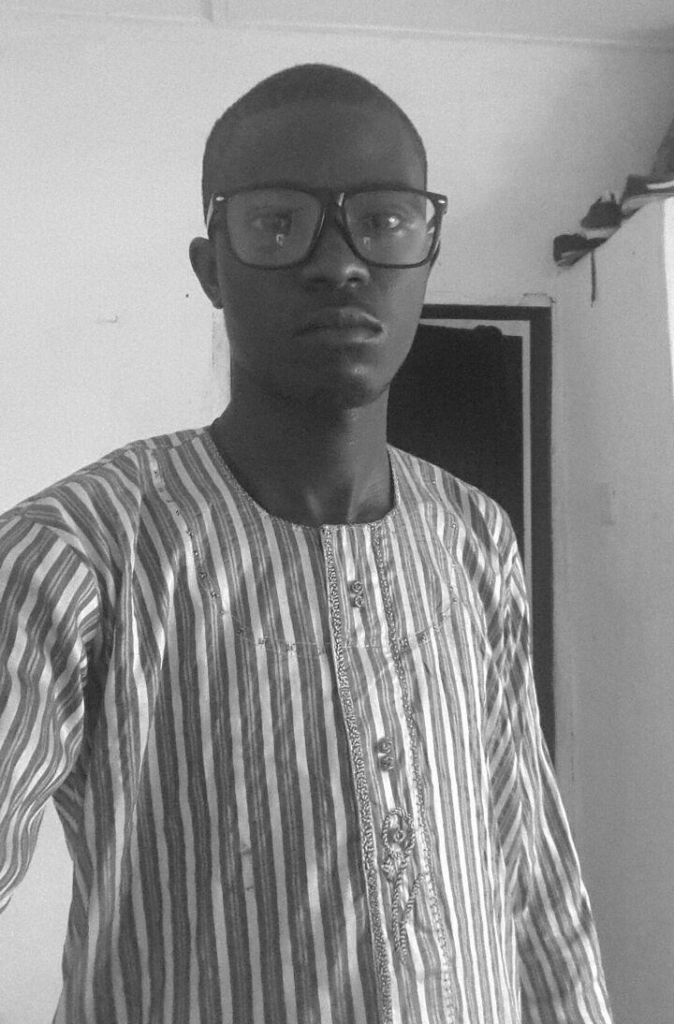 Trust F. Òbe, when not lazing around within his own thoughts or sleeping, spends more time on the screen than elsewhere. He lives on the internet at an email address. He likes Johnny Depp and Emeli Sandé.
Trust F. Òbe, when not lazing around within his own thoughts or sleeping, spends more time on the screen than elsewhere. He lives on the internet at an email address. He likes Johnny Depp and Emeli Sandé.
Cover photo credit: Kenechukwu Nwatu.
